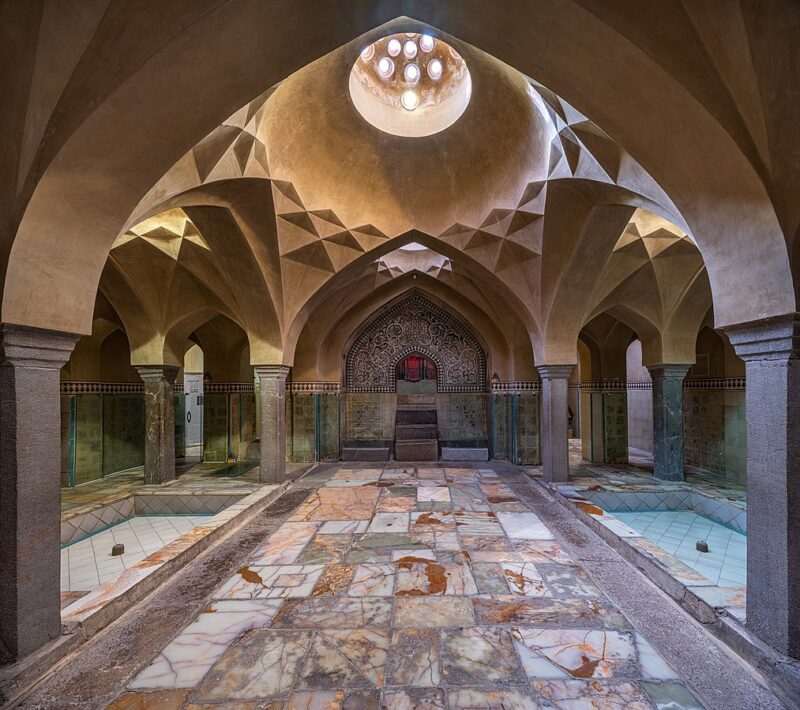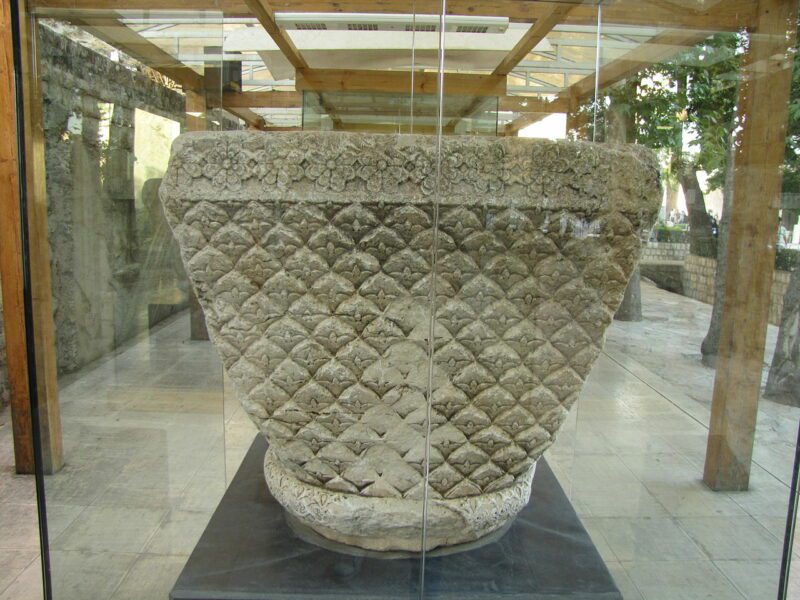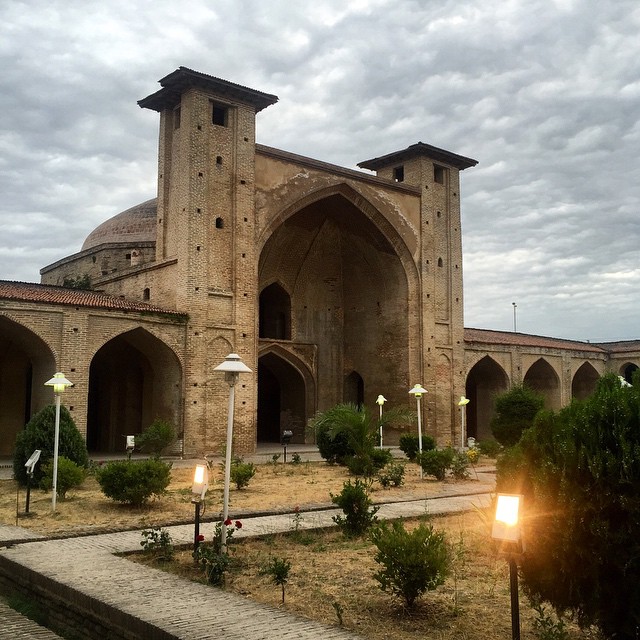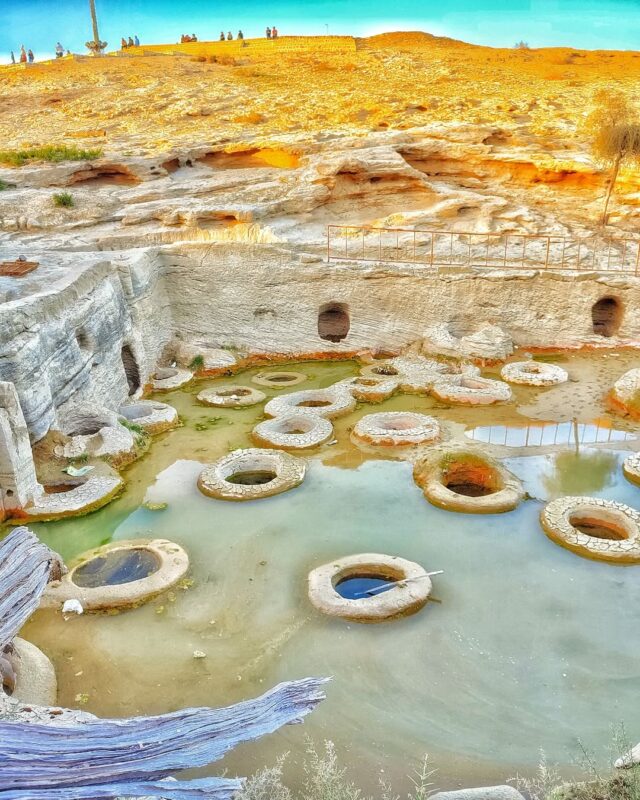Historical bath of Ali Qoli Agha: a tour of history, architecture and culture
Historical Ali Qoli Agha Bath, in the heart of Isfahan city, shines like a jewel and displays a unique example of Iranian art and architecture during the Safavid period. This bath, which is located in Bidabad region, was built in 1125 AH by the order of Ali Qoli Agha, a well-known and benevolent eunuch of the era of Shah Suleiman and Shah Sultan Hossein Safavi.
The architecture of Hamam Ali Qoli Agha dazzles the eyes of every viewer. The architectural style of this bath is Isfahani and its decorations include tiling, wall paintings, plastering and mirroring. Ali Qoli Agha bathroom consists of two parts, a large bathroom and a small bathroom and a basin area.
In the large bathroom, after passing through the vestibule decorated with tiles and wall paintings, we reach the Serbineh. Serbineh is a spacious and luxurious bathroom, decorated with seven-color tiles and wall paintings. The marble pool in the middle of Sarbineh has created a pleasant and relaxing atmosphere. From Sarbineh, we go to the greenhouse, which is the main space of the bathroom. Garmkhaneh includes vaults, arches and platforms, and its decorations are very exquisite and artistic. Tiling, wall paintings, plastering and mirror work have doubled the beauty of the greenhouse.
A small bathroom was installed for the use of the crew and bathroom staff. The space of the pool was also a place to store water and provide heating for the bathroom.
Hamam Ali Qoli Agha is not only a historical monument, but also a symbol of Iranian culture and lifestyle during the Safavid era. During that period, baths played an important role in people’s daily life and were a place for bathing, meeting and talking and performing some ceremonies.
Today, Ali Qoli Agha Bath is used as a museum of famous people in Isfahan. In this museum, a collection of documents and objects related to Isfahan celebrities such as photos, documents, books, clothes and works of art are exhibited.
Historical bath of Ali Qoli Agha




Join The Discussion